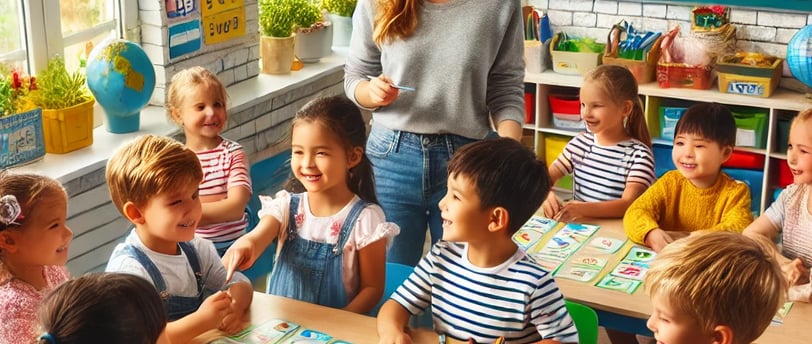The Benefits of Children Learning a Second Language
In an increasingly interconnected world, learning a second language is more valuable than ever for children. Whether for cognitive development, academic success, or social benefits, mastering another language offers countless advantages. Here are some of the key benefits of children becoming bilingual or multilingual.


1. Cognitive Benefits
Studies have shown that learning a second language enhances brain function in children. Bilingual children tend to have better memory, problem-solving skills, and critical thinking abilities. Moreover, learning a new language has been linked to improved creativity and cognitive flexibility, which supports overall brain development.
2. Improved Academic Performance
Students who learn a second language often perform better in school. Bilingual children tend to excel in reading comprehension, mathematics, and analytical skills. Learning a new language also strengthens their understanding of grammar and vocabulary, enhancing their overall communication skills.
3. Enhanced Cultural Awareness
Learning another language provides children with insight into different cultures, traditions, and perspectives. It fosters empathy, tolerance, and a deeper appreciation for diversity. By understanding a language, children gain access to its literature, music, and history, enriching their worldview.
4. Better Social and Communication Skills
Children who speak multiple languages are often better at social interactions. They develop strong communication skills, empathy, and the ability to navigate diverse social situations. Bilingualism enables them to connect with more people and build meaningful relationships across different communities.
5. Strengthened Problem-Solving and Adaptability Skills
Bilingual children often develop strong adaptability and problem-solving skills. Switching between languages requires mental flexibility, which translates into the ability to handle challenges and think creatively in other aspects of life. These skills prepare them for a wide range of future opportunities.
6. Increased Future Career Opportunities
In an increasingly global job market, bilingual individuals have a competitive edge. By starting early, children gain proficiency that can open doors to future job opportunities in international business, healthcare, education, and tourism, among many other fields.
7. Enriched Travel Experiences
When children learn a second language, they can engage more meaningfully with different cultures while traveling. It allows for more authentic interactions with locals, greater independence, and a deeper understanding of the world, shaping them into global citizens.
Conclusion
Learning a second language at a young age is an investment that pays off in numerous ways. From cognitive growth and academic achievement to cultural appreciation and expanded social opportunities, the benefits of bilingualism for children are undeniable. Encouraging children to learn a new language not only enhances their skills but also broadens their horizons, preparing them for a successful and enriched future.
Author and early childhood educator for nearly 30 years.
© 2025. All rights reserved.
Highly recommended by parents, grandparents, daycare providers, librarians and educators.
★★★★★
